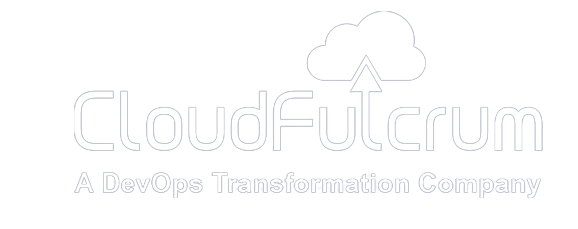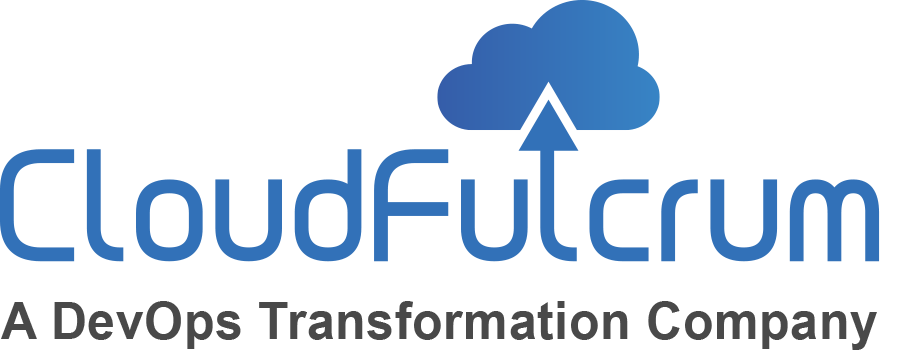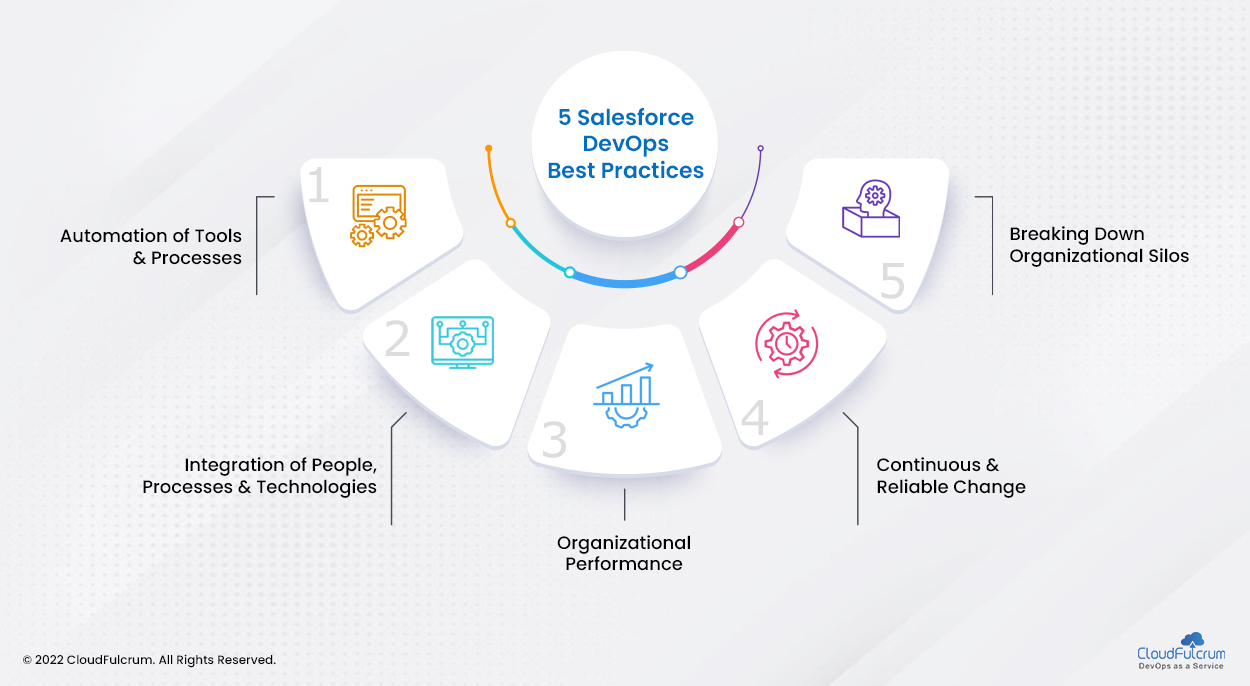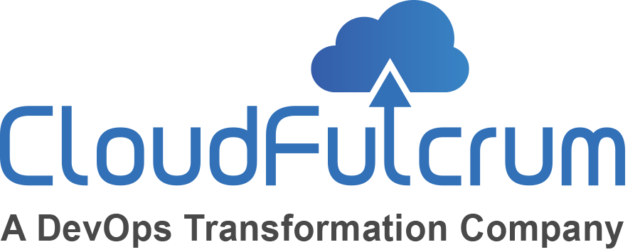Introduction
The pace of digital transformation is significantly driven by the new norms of digital connectivity due to the COVID-19 pandemic. Organizations that might not have migrated far in their digital transformation journey need to seriously consider Salesforce DevOps as an approach to build and improve upon speed and agility. The business world cannot avoid embracing digital transformation and 2022 is expected to witness rapid scaling of digital initiatives across all industries post the pandemic. Software is fast becoming a critical business differentiator in the industry and its swift, reliable, and timely delivery is becoming the crux of digital transformation.
It is impossible to think of digital transformation without proper collaboration between different teams building and operating the IT systems. Technology change is so dynamic that no single team can understand all the details of relevant technologies. Hence, we need to enable teams to focus on a smaller problem. Without a solid infrastructure foundation, automation, and proper team collaborations, the swift pace in digital transformation would be impossible.
Salesforce DevOps plays a critical role in digital transformation – from identifying business models to unearthing new revenue streams. In fact, it’s almost impossible to have one without the other. Salesforce DevOps helps organizations succeed with digital transformation by transforming their cultural mindset, isolating unfavorable silos, and paving the way for incessant change and rapid experimentation. All these elements help organizations meet ever-changing customer demands. This helps organizations to proceed towards better solutions for non-stop improvement.
5 Salesforce DevOps Best Practices That Help Digital Transformation
Salesforce DevOps is an approach that focuses on transforming your human resources, workflows, and technology. The whole process begins with a cultural and leadership change. The methodology enables swift, frequent, and seamless service delivery. Following are some of the best practices through which DevOps as a Service (DaaS) helps an organization in digital transformation:
Best Practice#1: Automation of Tools & Processes
The IT industry was so busy automating the world that it forgot the benefit of automating itself. Salesforce DevOps has enabled to create a ‘point of convergence’ around which business organizations can design their digital transformation strategies. Digital transformation becomes a reality through the Salesforce DevOps principles of increasing flow, shrinking feedback loops, and promoting non-stop learning and experimentation. Salesforce DevOps emphasizes on maximization of automation to enliven its principles. However, automation, per se, is not the panacea for either Salesforce DevOps or digital transformation. Automation has to be implemented by people and supported by both process and culture. Without CI/CD automation, digital transformation becomes extremely difficult and competitive advantage becomes too limited.
Best Practice#2: Integration of People, Processes & Technologies
Salesforce DevOps empowers organizations to create additional value to their customers’ needs at a swifter pace. It integrates individuals, work processes, and technology in an effective manner. When these three components sync with the same business objective, innovation and advancement take place swiftly and more efficiently.
Salesforce DevOps reduces the internal resources and tools by shifting the focus on what should be done around digital transformation. This leads to teams automatically working on essential features. Salesforce DevOps makes it possible for swift and frequent release of new technology, enabling it to gain a competitive edge over other players in the market. It also helps meet customer requirements on a timely basis.
Best Practice#3: Organizational Performance
Salesforce DevOps helps unearth new models that help organizations improve consistently. The function of Salesforce DevOps in digital transformation is to help organizations understand the models and practices that are likely to boost their performance amidst digital disruption, thus strengthening their competitive ability. Transitioning from a traditional hierarchical, command-and-control organization to a digital-ready organization, where authority is distributed, autonomy and alignment are balanced, and all are empowered to contribute necessitates some serious behavioral change. The Salesforce DevOps approach helps us understand why maximizing the flow from idea to value realization isn’t just about building a pipeline, and significantly gives us the structures and models to work from a cultural mindset, too.
Best Practice#4: Continuous & Reliable Change
Myriad factors drive digital transformations such as swift learning, adoptions, changes made by organizations, how they adopt cloud technologies, keep their architectures latest, and try to reach out to a wider customer base. If processes, culture, and control, which enable you to embrace continuous changes, are what the organization lacks, then Salesforce DevOps approach is what the organization requires to achieve its goals. Salesforce DevOps culture and practices are significant for implementing such organizational transformations.
Best Practice#5: Breaking Down Organizational Silos
Generally, the Development teams are the ones completely responsible for any digital transformation initiative. They build and support the architecture that makes organization-wide digital transformation a reality. Development teams must embrace a Salesforce DevOps mindset, which will help drive their digital transformation initiative by enabling team members to test and troubleshoot swiftly, collaborate throughout the organization, and embrace experimentation, ultimately spurring innovation.
Breaking down the silos in the organization is one of the biggest ways Salesforce DevOps drives digital transformation. The success of digital transformation initiatives depends on its adoption throughout the entire organization. However, sometimes traditional business practices, such as yearly planning cycles, get in the way and impede or decelerate the processes. By breaking down these silos, development teams can get deeper insights into what is and isn’t working across the organization, which allows rapid enhancements and creates a culture that embraces the changes that accompany digital transformation.
Conclusion
Achieving digital transformation for your organization without Salesforce DevOps is almost impossible. The prominent changes that Salesforce DevOps best practices bring to your organization are the close collaboration between the Development and Operations teams, and creating an environment for both teams to function together at its best. In addition to the digital transformation, it also helps your team deliver the best solutions to its customers on a timely basis.
About CloudFulcrum
With its mission of “DevOps as a Service,” CloudFulcrum has been a part of multiple successful Salesforce implementations across the globe with satisfied customers in BFSI, Health Care, Retail, Real Estate, and Technology verticals.
With our Salesforce DevOps consulting, we help enterprises align their Digital Transformation goals to achieve higher efficiency, faster time-to-market, and better quality of software builds with early identification of arising issues, enabling continuous release of Salesforce applications.




